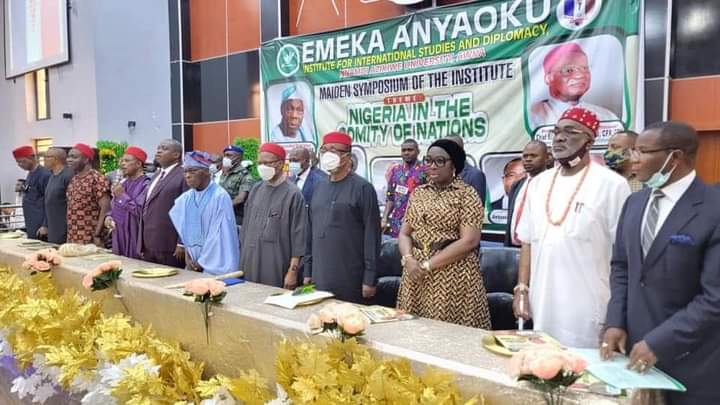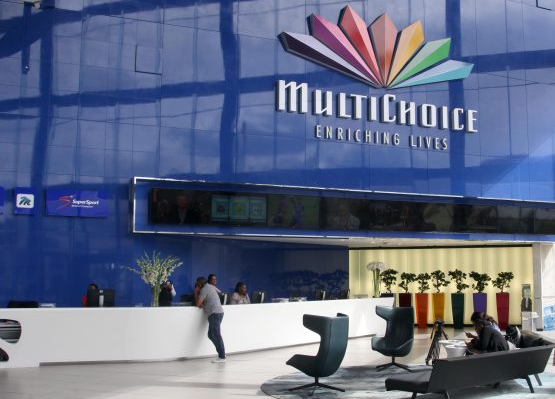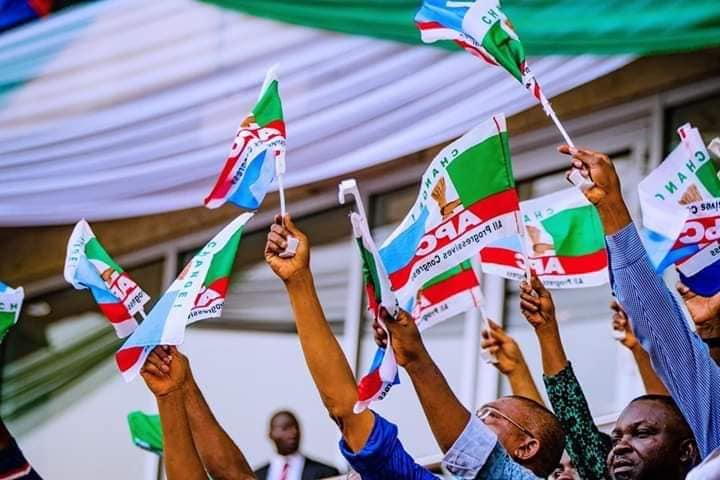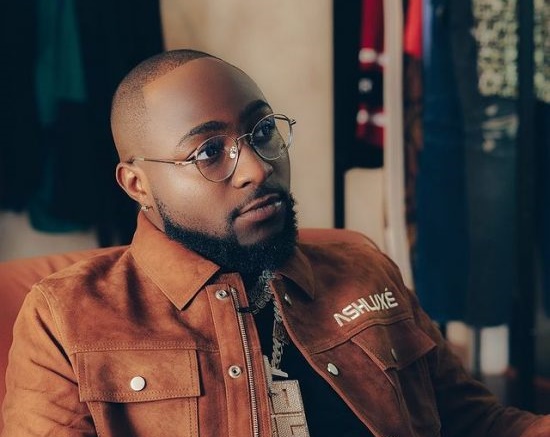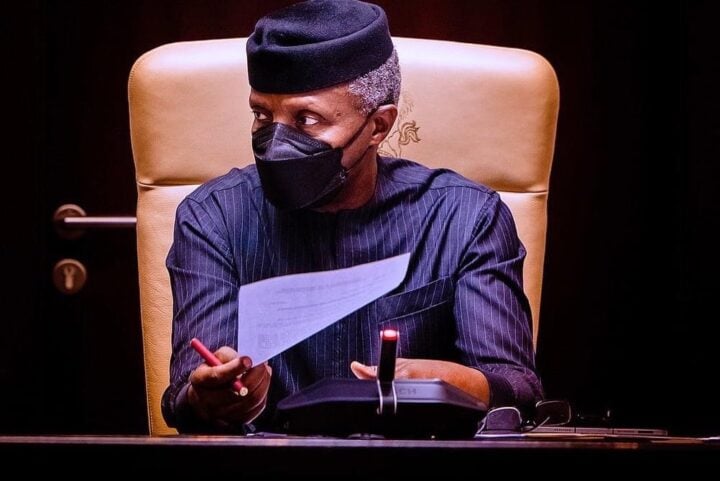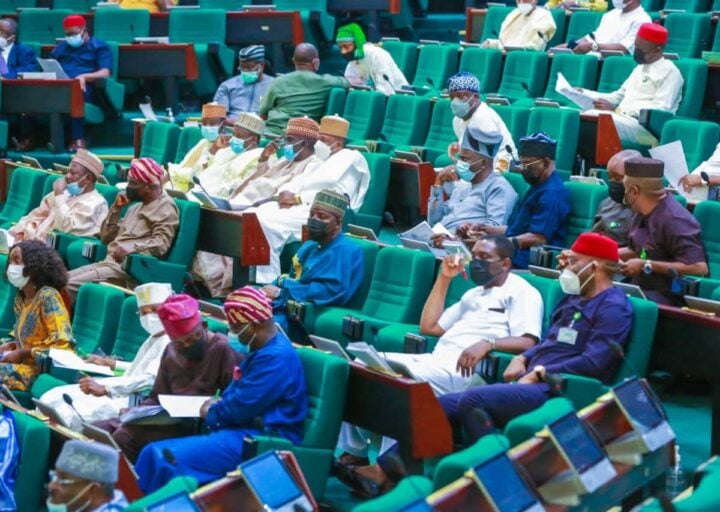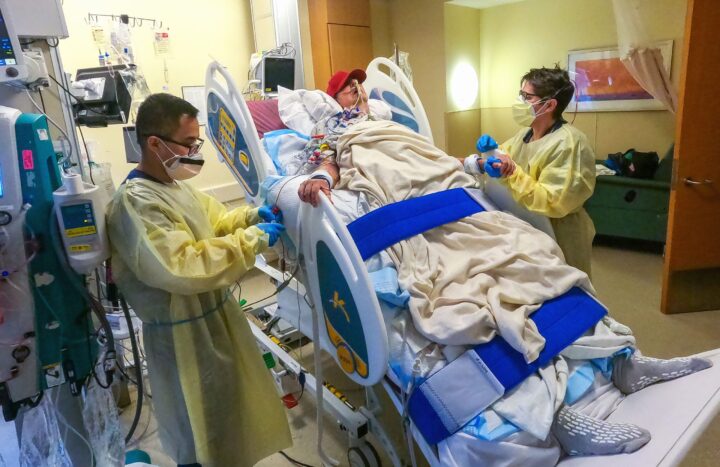Former President Olusegun Obasanjo says Nigeria needs to focus on efforts to regain its position as a major influence internationally.
The former president spoke on Tuesday at the maiden symposium of the Emeka Anyaoku Institute for International Studies and Diplomacy, held at the Nnamdi Azikiwe University in Awka, Anambra state.
He praised Anyaoku for his efforts while he was secretary-general of the Commonwealth, adding that at the time, Nigeria was one of the major players in world affairs.
Speaking on the theme, ‘Nigeria in the Comity of Nations’, Obasanjo highlighted efforts by Nigeria to contribute to the anti-apartheid movement, including advocacy efforts at the Commonwealth and threatening sanctions against the US and Britain in the 1970s — Nigeria was second on the rank of major oil exporters at the time.
Advertisement
According to the former president, Nigeria’s intervention in the anti-apartheid cause also led the West African country to be declared a member of the frontline states — a group of countries which shares borders with South Africa.
“I talk about what I call our Africa narrative. Let us tell our stories. The stories of events that have happened to us, let us tell them by ourselves. For Nigeria to play the rightful role in the comity of nations, we all have a role to play,” he said.
“Let me take you back. In Nigeria, by virtue of our policy, we became a member of the frontline states. Geographically, we are not a member of the frontline states. We are far from the frontline. We even had something we called Southern Africa Relief Fund — public officers voluntarily contributed five percent of their salaries in one month and we used it for decolonisation and removal of apartheid.
Advertisement
“Before you clap, the idea of that Southern Africa Relief Fund came from a woman in this state who sent us small amount of money and said ‘I’m contributing this to what you’re doing in South Africa’. From there, we got the idea and thought ‘why don’t we make it a national issue? And if we make it a national issue, our effort in South Africa is not only a government effort, it is a national effort.’ And that’s what it became.
“As I said, our idea, policy and execution of policy has gone from high to low and not too high at times. But let me quote another thing Tafawa Balewa said: ‘it will follow as a natural consequence of cooperation in other fields. So I wish to state that I think that it will be the greatest threat to peace in Africa if any country sets out to undermine the authority of the properly chosen leaders of other states with a view of imposing political union.’
“Political union and economic integration we must have, but it must never be imposed. That should be part of the role of Nigeria in the comity of nations.
“I’ve told stories about what I regard as some of the high points in Nigeria in the comity of nations. One was the period of Jimmy Carter, James Callaghan, Julius Nyerere, Kenneth Kaunda, and us here in Nigeria, and we worked together.
Advertisement
“Where we couldn’t work together, we moved the rest of Africa to work with us. We even got through to Margaret Thatcher. It became some difficulty for chief Emeka Anyaoku, because when a Commonwealth country says to another Commonwealth country that ‘you can go to blazes’, the Commonwealth cannot be happy with that. And we said that ‘you can go to blazes’ and we got what we wanted.
“Are we powerless today? Of course, we are not powerless. We are probably not as strong as we should have been because we are comparatively weak at home. But we can make ourselves strong at home.
“There is no reason we shouldn’t make ourselves strong at home if we get one thing right, which I talked about three days ago: nation building. If we do not get nation building right, we will not be able to muster the territory to lead the rest of Africa and make Africa matter in the comity of nations and by extension, make Nigeria matter in the comity of nations.”
Also present at the event were Willie Obiano, governor of Anambra; Chukwuma Soludo, governor-elect of Anambra; and Peter Obi, former governor of the state.
Advertisement
Add a comment
